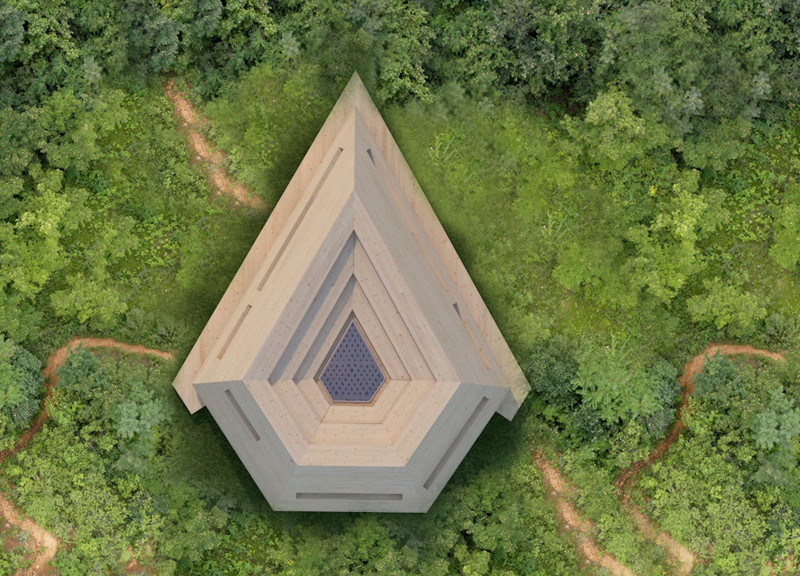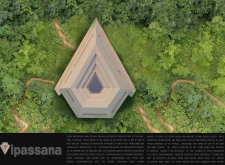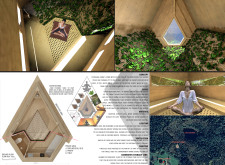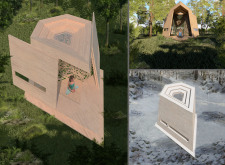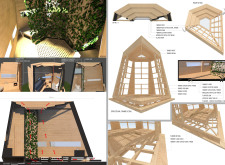5 key facts about this project
The Vipassana Cabin is designed to create a peaceful space for meditation and personal reflection in a forest environment. It draws inspiration from the ancient practice of Vipassana, which focuses on seeing reality as it truly is. The cabin’s overall design encourages users to connect with nature while offering an environment conducive to self-discovery and contemplation.
Spatial Arrangement
Inside, the cabin features clearly defined areas for different activities. There are spaces dedicated to meditation, writing, and drawing, allowing for a variety of reflective practices. A wall made of herbal plants separates meditation areas from private spaces, enhancing the calm atmosphere and helping users focus on their thoughts.
Materials and Longevity
Local wood is used throughout the cabin, ensuring the structure blends with its surroundings. This choice reflects a commitment to sustainability. The exterior wood is treated to resist weather, which protects the cabin and extends its lifespan. Glass is incorporated into the roof and windows, allowing natural light to fill the interior while reducing the need for artificial lighting.
Environmental Features
The design also prioritizes ventilation, with a raised floor that encourages air circulation and maintains a comfortable environment in all seasons. A fireplace is included in the pantry area, providing warmth during colder weather, which enhances the cabin's usability. The rainwater collection system further supports a sustainable approach, collecting and filtering rainwater for practical use.
The cabin's design emphasizes a strong connection to nature. Large windows frame views of the surrounding landscape, bringing the calming presence of nature indoors. This thoughtful inclusion not only improves the experience of meditation but also reinforces the purpose of the cabin as a retreat for introspection and mindfulness.


